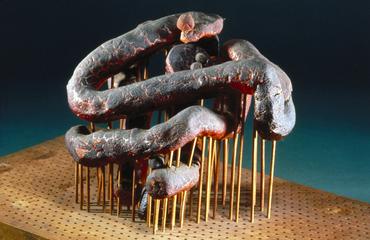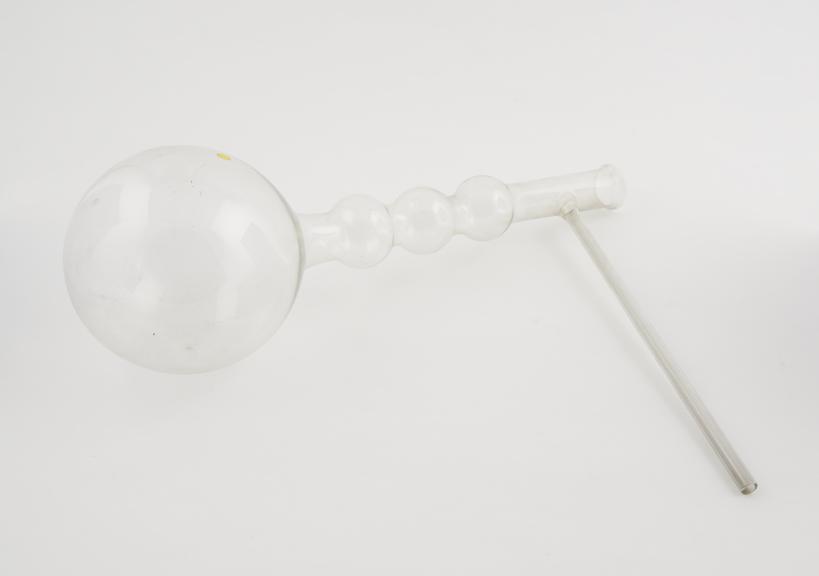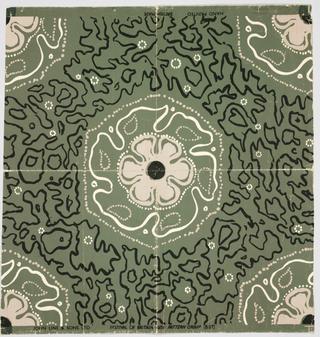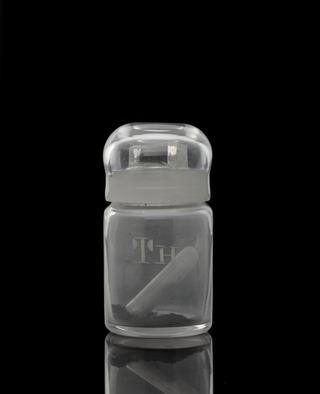
Ladenburg distillation flask
- Made:
- unknown place

Laboratory glassware, 'Ladenburg' distillation flask with three bulbs in neck and sidearm, object bears a yellow sticker with no marking, maker, place and date of manufacture unknown
This piece of glassware, part of a collection of just over 300 items, came from the Silberrad Research Laboratories founded by Oswald Silberrad in 1907. It was located at his home in Buckhurst Hill, Essex, until 1933 when Silberrad moved to Dryads’ Hall in Loughton, Essex. The laboratory remained active until his death in 1960.
Oswald Silberrad was an industrial chemist. His early interests were mainly in explosives chemistry, where he provided support for the War Office leading up to, and during, the First World War (1914-1918). His most notable work in this area included the invention of the explosive tetryl (known as ‘Silberrad’s explosive’), the use of TNT as a detonator, and the development of flash-less artillery propellants. His chemical research also included the invention of a corrosion resistant bronze alloy ‘Turbadium’, which was used in ships propellers, and the development of PVC fuel pipes used in aircraft.
Details
- Category:
- Experimental Chemistry
- Collection:
- Silberrad Glassware Collection
- Object Number:
- 2021-746
- Materials:
- glass
- type:
- laboratory glassware




